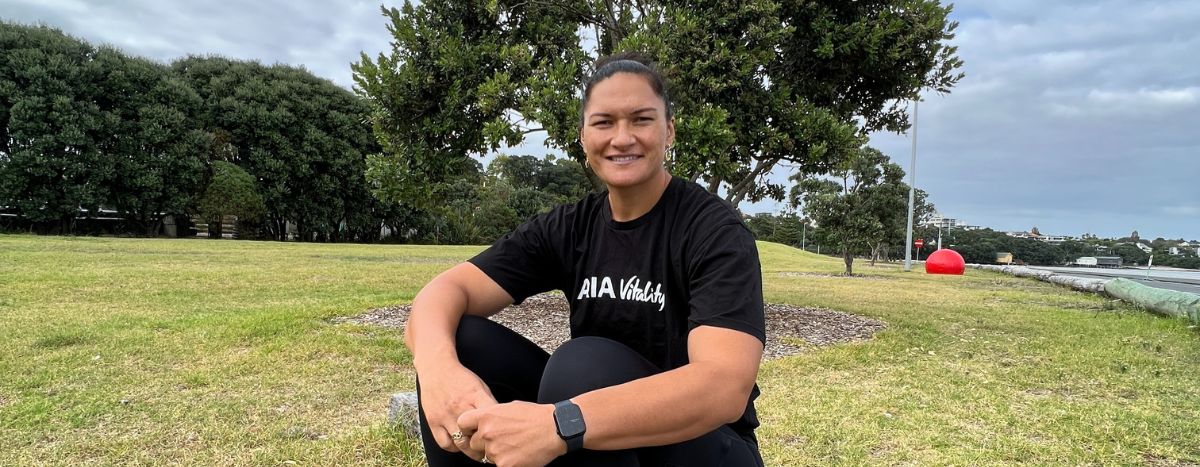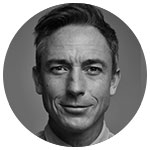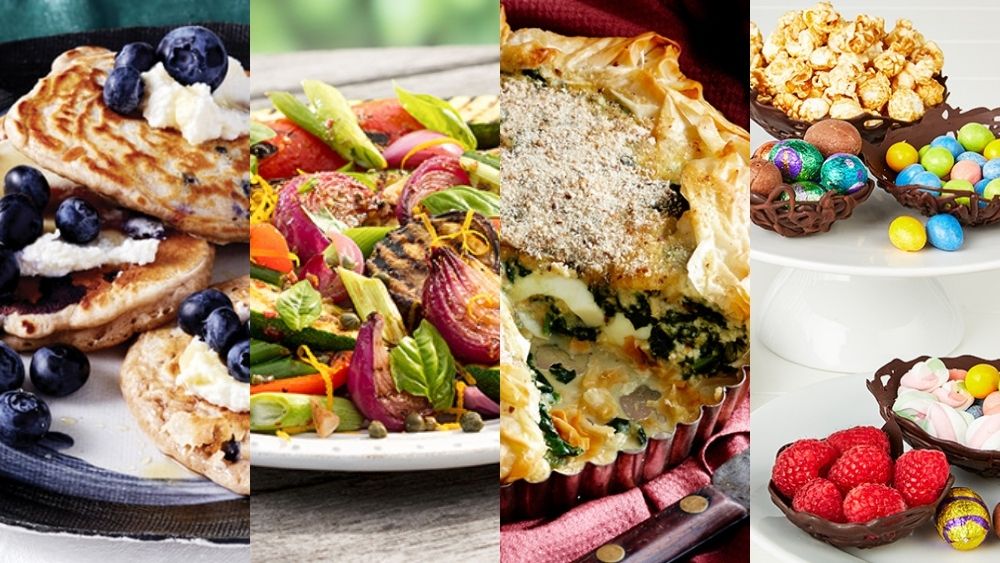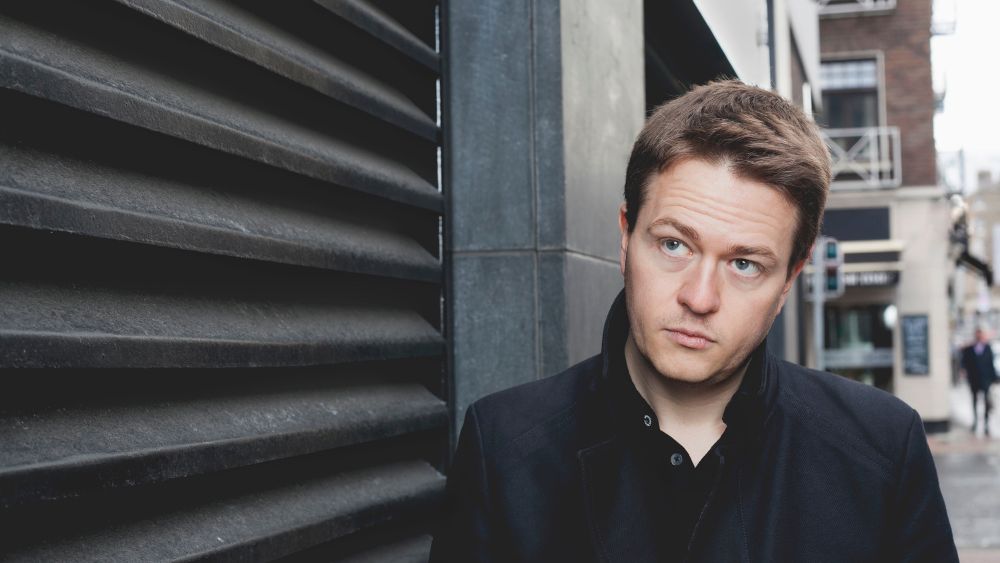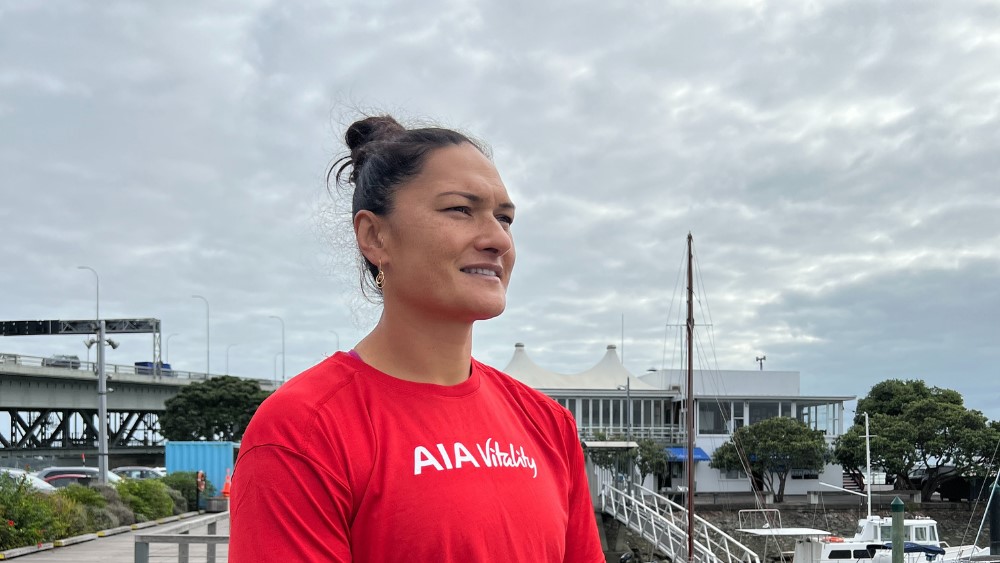When she was an up-and-coming athlete, she said that it was challenging trying to fit in. Girls that looked like her were not the norm in the world of track and field, and she was told that she should go and play basketball. This never felt truer than the moment she appeared at the Beijing Olympic Games in 2004. Shot put had long been an event dominated by women from Russia and Germany, and so the appearance of a Kiwi Tongan girl from South Auckland was unusual.
Any preconceived ideas were shattered about her place on the field when Adams took home gold at her second Olympic Games in 2008. It wasn’t just a breakthrough moment for shot put or for her career, Dame Valerie’s gold was the first Olympic gold medal in track and field for New Zealand since John Walker won the 1500-meter race in 1976.
There’s a certain methodology to the way that she operates, and hard work is at the heart of it. This is something that becomes apparent during her very candid and insightful conversation with Dominic Bowden on the WellBeings podcast recorded in the lead up to the launch of her new film, More Than Gold (currently in cinemas nationwide). Adams is the first Kiwi to be featured on WellBeings, where Dominic speaks to global thought leaders and changemakers who are redefining the way we think about looking after ourselves.
In the podcast, Dame Valerie says, “There are so many Valerie Adams’ out there. It’s about them being prepared to put in the work. If it were easy, there’d be a lot more gold medallists.” She also credits her success to the fact that she was doing it for her late mum, who passed away when she was only 15 years old. At such a young age, she found that fire that fuels her on the world stage in a desire to honour her beloved mother by seeing how far she could take her natural abilities and potential. Training, she says, was how she processed her grief.
Dame Valerie believes that there are choices that you make, and the passing of her mum could have been the first of many opportunities to tap out and become part of the status quo, but she chose a different life, one that wouldn’t have been considered ’normal’ where she came from. “If you want things to be different, you do have the power to change it,” she says.
In the same breath, she is so proud of her heritage. “It’s important for me that I stay true to where I came from. I still remember where I came from, where I am now, and I’m grateful and appreciative”. This is what has taken her full circle and back to her roots where she is now fully immersed in helping to change things within her community.
In the podcast she opens up to Dominic about the moment when she found out that her little boy, Kepaleli, had type 1 diabetes and how that forced her and her family to make changes to support his new journey
While type 1 diabetes is caused by a combination of genetic and environmental factors, type 2 diabetes is impacted by poor diet and lack of exercise and has taken the lives of many of her loved ones; so much so that she says it feels like it’s become the norm amongst her family and their community to get diabetes eventually, and many people joke about it as a way of outwardly coping with the fact that they’ve also been affected by the disease.
The way forward, she says, is not by telling people what they can and can’t eat. She says, “I don’t know if you like being told what to do, Dom, [but] I certainly don’t. I especially don’t want to be told how to eat. Food brings families together. It’s not about restriction, it's about the tools”. She goes on to explain that it’s so much about community support – coming at things from a non-judgemental place and changing people’s mindsets around it being OK to not be OK. “I’m hoping a light switch goes off now to make changes”. How do we make those changes in the country? She believes that it starts with being more supportive and encouraging of each other, something us New Zealanders aren’t always known for.
One of the darkest moments in her career, Dame Valerie recalls, was during the London Olympics in 2012. She had won a silver but had been expected to win gold. The media and newspapers were tearing her apart for letting down the nation.. Only seven days later, her silver turned to gold, and she was made a national hero when her Belarusian rival was stripped of her title for using banned steroids. But the impact of that initial criticism has stayed with her.
Now a mother, Dame Valerie says she does worry about this kind of pressure that comes at every kid because of social media. She says that all we can do is lead by example and show our kids that we don’t need to worry about what other people think.
She did just that when people were saying that she couldn’t compete after having children. “My goal in Tokyo was to win a medal, I didn’t care what colour, but I had two kids… who had ruined my body, but I wanted that last say. I had already been written off before I even started on that journey, and I thought, screw you.” Once again, she didn’t listen to the noise, but dug deep into her belief in herself. Being up there on the podium, in Tokyo with a photo of her kids and holding up her bronze medal “was the best feeling of my life,” she says,
“I felt like I’d won a gold medal, just because of the journey it took to get here. Right through from the diagnosis of my son, the pandemic, to right here in Tokyo. My fourth Olympic medal for my country was my most amazing.” This is what she is most proud of and wants other female athletes to see. She says that, “You can have it all. You can be a mum and an athlete and have a career.”
Dame Valerie Adams has been up against the odds more than a few times, and from this very candid and insightful conversation with her, here are eight key things to remember about defying expectations:
- If you want it, go get it. Where you come from does not define you.
- Remember where you came from but know that you have the power to choose your own life. You always have a choice.
- When something big happens in your life, “How you act in that moment will define who you will become.”
- Just because you don’t look like the others, doesn’t mean you don’t deserve to be there.
- “Get rid of the judgment. Be the solution. For instance, ‘Do you need a buddy to walk with today?’ Just be that friend, be that person.”
- Be encouraging and supportive of each other. That’s how we will make real change.
- Everyone else can write you off before you write yourself off.
- “You can have it all. You can be a mum and an athlete and have a career.”

Through conversations with some of the world’s most famous faces in the field, WellBeings explored the ‘science of feeling good’. Through a series of Podcasts and articles, we learned together the simple practices that can help us all thrive, backed 100% by science.



